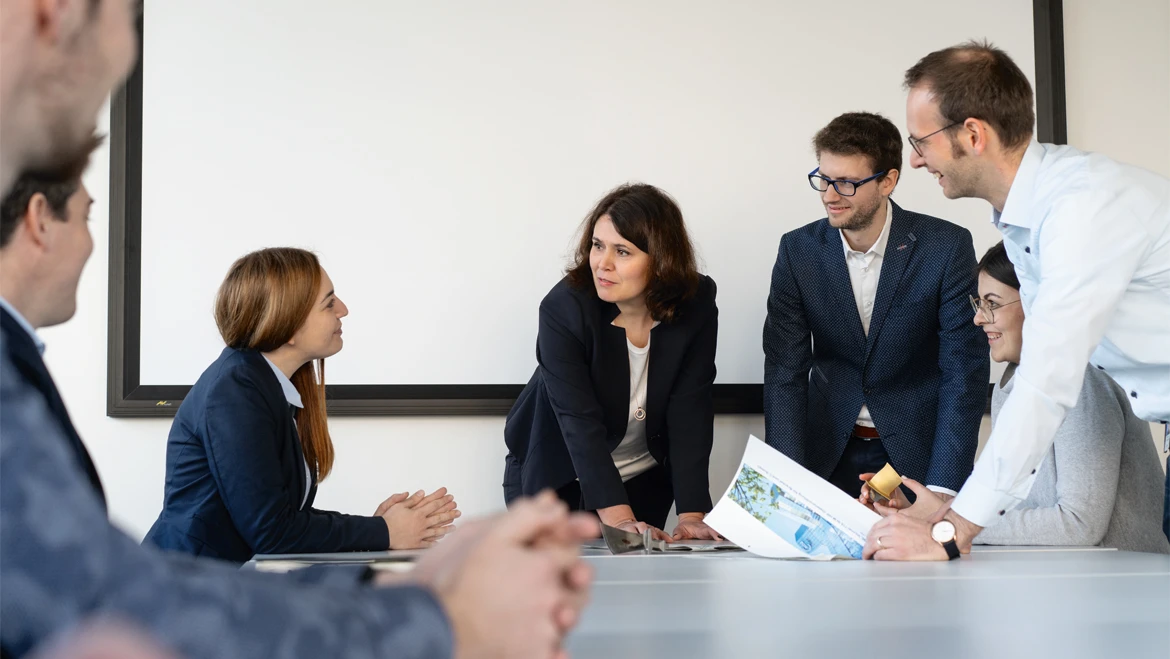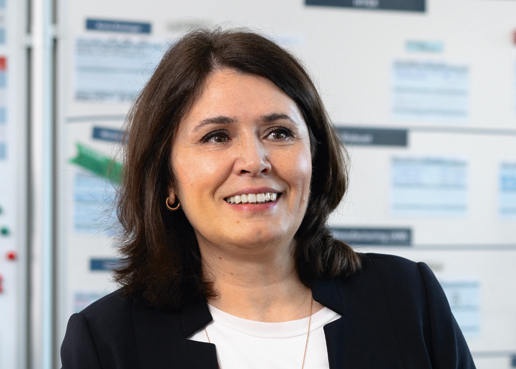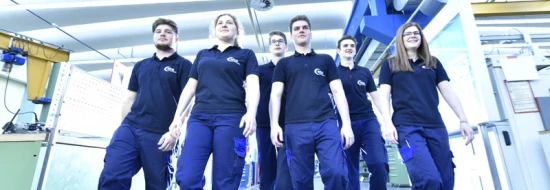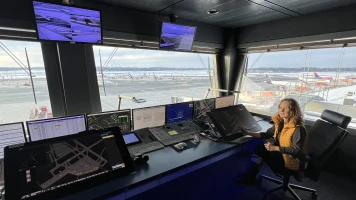people
MTU manager Dr. Mihaela Sorina Seitz mentors female STEM students.
Women with a science or technical degree have excellent career opportunities. An interview with Dr. Mihaela Sorina Seitz from MTU Aero Engines on supporting female STEM students.
author: Nicole Geffert | 4 mins reading time published on: 01.04.2020
author:
Nicole Geffert
has been working as a freelance journalist covering topics such as research and science, money and taxes, and education and careers since 1999.

When it comes to studying the natural sciences or technical fields, women in Germany are still underrepresented. You wish to change that by supporting driven, talented female students. What specifically do you aim to accomplish?
Throughout my career, it has become increasingly important to me that I personally advise young women studying a so-called STEM subject – science, technology, engineering, or mathematics – and support them in their careers. It is also important because there is still a growing demand for highly qualified, technically trained junior employees. At the same time, there is an overall shortage of STEM graduates. My efforts are aimed at encouraging young women in scientific and technical courses of study to use their strengths in these professions and later to take on the challenges of a management position. Supporting women in engineering careers will remain crucial for as long as men continue to outnumber them.
Can you provide details on how you support female STEM students?
For several years now, I have been involved in a mentoring program coordinated by the University of Stuttgart and supported by managers from MTU. As a mentor in this program, I advise and support female doctoral students in technical and scientific courses of study. The younger generation is tremendously motivated. Many of these young women have very high expectations of themselves and want to do everything perfectly, which can sometimes lead to self-doubt. But it’s possible – and necessary – to learn how to stand up for yourself and for what you can do. I was fortunate to have had superiors in my career who recognized and rewarded my performance. If this is not the case, you have to be the one to take the first step; to stand up with confidence and draw attention to your own achievements. Although many men don’t find this too difficult, we women have some catching up to do.
What topics are important to up-and-coming female engineers?
They expressly want feedback: Where do I stand? How can I improve? What is my potential? This has been my experience not only as a mentor, but also in my volunteer work on the management board of the MTU Studien-Stiftung, which I’ve been chair of since 2019. Once a year, we organize a multi-day training course on a specific topic for female STEM students. The course participants, who’ve all made outstanding professional achievements, are open to new ideas and have the ambition to make things happen. They use their time together to exchange ideas and build networks. Intensive networking lets them benefit from these contacts, enabling them to share information about internships, assignments abroad, professional issues and the like.
Could you give an example of when a STEM graduate benefited from your advice and successfully launched a career in a technical field?
In the mentoring program at the University of Stuttgart, I advised a young woman who had just completed a technical master’s degree and so had to decide whether or not to continue on to do her doctorate. No one in her family had an academic education, and she herself had little idea at first whether a doctorate was the right move for her and what kind of job in industry she might like to do afterward. Through our conversations, I was able to help her make a clear decision about the next step in her career. She completed her doctorate at a leading German research institute and was also team leader there. At another crossroads later in her career, she contacted me again to find out what it’s like to work for the management board. She wound up joining a German industrial company as a project manager in the technology division where she reports directly to the company’s Chief Technology Officer.
Your team at MTU Aero Engines is evenly split between men and women. Do you support both groups equally?
I give everyone on the team the space to contribute their own individual strengths and abilities. However, young employees in particular – women and men alike – are still developing their potential. For them, it is ideal if they have not only a supervisor to support them, but also an employer like MTU. In this company, we have an excellent range of training courses and an environment that encourages people to keep developing their skillsets. As an employee here, you have access to opportunities for lifelong learning. I always encourage my employees to take advantage of that. I myself am a person who is always looking for new challenges, and look within myself to find ways to improve. I enjoy inspiring talented people by showing them their potential and prospects.
They say that mixed teams work together more successfully. Is that true in your experience?
Yes, especially teams that are made up of new and experienced colleagues, women and men. Nowadays, due to the high complexity of engineering projects, it’s not individuals who find answers, it’s interdisciplinary teams. In my experience, this kind of teamwork benefits women in particular. After all, many women have great communication skills plus a certain amount of empathy and foresight. They are in no way inferior to men in terms of technical knowledge; they work in a structured, solution-oriented manner and get right to the heart of the matter. It is often said that more than anything, women want to be appreciated in their jobs. As do men! And in closing, I’ll share a little secret with you: managers are also happy to receive positive feedback from their employees.







